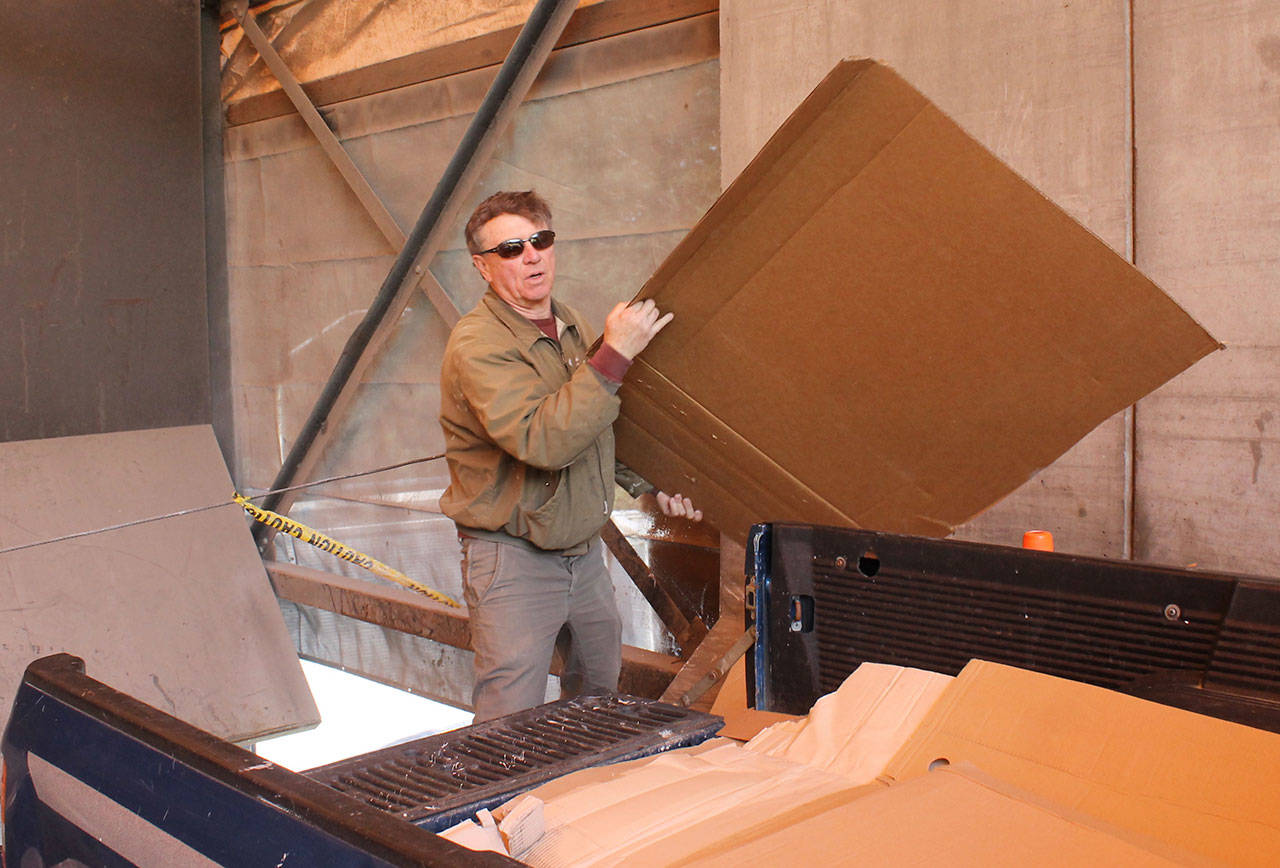Mixed recyclable items on San Juan Island will now be sent to landfills due to China’s import ban.
In July 2017, China notified the World Trade Organization that it would prohibit the import of certain solid wastes and scrap into their country, including mixed paper and mixed plastics, starting Jan. 1, 2018.
As of today, San Juan Transfer Station Recycling Program no longer accepts co-mingled or mixed materials for recycling. Recology, the facility in Seattle that processes San Juan Island’s recyclables, has stopped accepting mixed recyclables.
So if you show up at the dump or put items on the curbs, here is what is currently accepted: clean and separated cardboard, metal, aluminum cans, and clean wood. All other material must be placed with your garbage.
Lautenbach will honor recyclable pricing for mixed recyclables coming to the transfer station during the transition.
It is likely the Town of Friday Harbor will discontinue curbside recyclables collection in the next 30 days but the actual date has not yet been determined.
The E-waste program, run by the state, will continue.
Lautenbach Industries of Mt. Vernon, which operates the San Juan Island garbage facility on Sutton Road, released the news this week, along with recycling information on their website sanjuantransferstation.net.
According to Lautenbach officials, source separating recyclables will likely remain the only viable long-term solution. They are actively working to find markets for recycled items, especially plastics.
“The problem is, this hit the entire west coast,” said Paula Birchler of Lautenbach. “Over 30 percent of this type of waste has historically gone to China for over 30 years. Everyone was hit at once.”
Now recycling companies in the Northwest are scrambling to find new sources to handle recycling.
Other islands
There are no changes to the county-wide curbside collection of recyclables by San Juan Sanitation or self-haulers bringing their recyclables to the Orcas Transfer Station and Lopez Solid Waste Facility.
Orcas Recycling Services will not be affected by the recycling ban, said Executive Director Pete Moe, at least not yet.
“For now, ORS and San Juan Sanitation customers are ok. However, prices may go up because Waste Management prices may go up,” said Moe. “We expect to continue accepting comingled recycling until we hear otherwise from Waste Management.”
Waste Management is where ORS sends its recyclables and garbage off island. According to Moe, as of right now, the ban will only affect San Juan Island residents because Lautenbach uses a different contractor for its recycling.
China
According to the nonprofit Solid Waste Association of North America, China is the largest export market for recyclables generated in the United States. They import about 13 million tons of paper and 776,000 tons of plastic from the United States annually.
The association tried to argue that U.S. recycling facilities would not be able to cope with this change by 2018. In September, China announced they would move forward with the waste import ban. China said much of the refuse sent to them was contaminated, often with items as unpleasant as used diapers.
Future
Birchler sees the problem as potentially helping manufacturers and consumers to reduce waste.
“Long term this could be a good thing, “ said Birchler. “It could help us find out how to use less.”
Moe agrees, adding that the U.S. has been, “dumping the worst stuff on China for years.”
“It also really points out a lot of the problem in the whole recycling system in this country … The public is really going to have to start looking back at manufacturers of the products,” said Moe. “In a way, it could be a wakeup call for not just San Juan County but the country in general, that we can’t just be making all of this stuff and expecting people to take it.”



